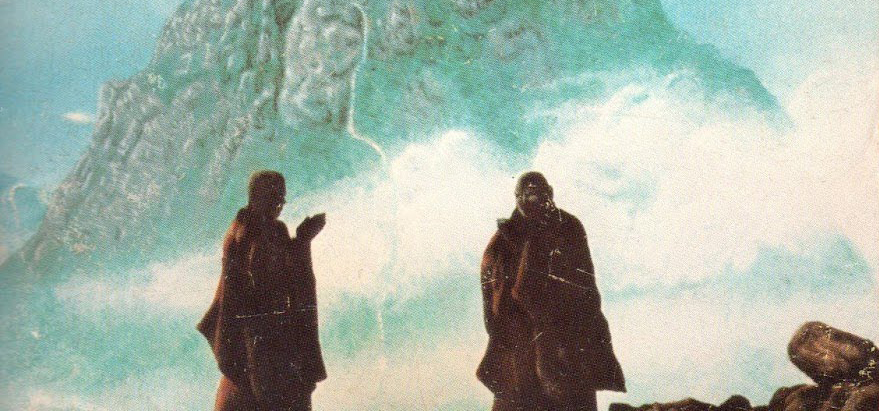Book Collecting Guide
Nebula Award Winners of the 1980s

The Fountains of Paradise, by Arthur C. Clarke (1980)
Leave it to Clarke to anchor a strange decade in hard sci fi. It is ultimately a classic hero’s journey with a decidedly scientific flavor, but it feels like a love letter to a space elevator. It fails to shine despite all that, and I would neither recommend it nor steer others away.
Timescape, by Gregory Benford (1981)
First of all, I do not like time travel books. They’re complicated in a way I do not enjoy. Additionally, I do not like authors who leave me with the impression that they like the sound of their own voice, even if their characters are trying to prevent ecological destruction by sending a telegram back in time. Benford is obviously talented, but I would tell others this book will waste their time.
The Claw of the Conciliator, by Gene Wolfe (1982)
Jumping into the second book of a four-book series is not a good idea. I told people how much I disliked this book and was told by fans of Wolfe that my pain made sense. He is evidently very good but takes some getting used to. Still, anachronistic technology is not enough to make me want to come back.
No Enemy But Time, by Michael Bishop (1983)
I’ve mentioned that I do not like time travel books. This one is different, to say the least. You don’t often hear about going back to prehistoric times and getting married with children after all. The prose is top-notch, but the story failed to grab me. I would neither recommend this book, nor would I steer others away.
Startide Rising, by David Brin (1984)
Talking dolphins flying spaceships? Chimpanzee scientists? A massive interstellar vassal system? Brin holds it all together and tells a good story with interesting themes, even if you jump into the second book in the series. I would recommend this book to very specific people. Very, very specific people.
Neuromancer, by William Gibson (1985)
This is a classic, it helped spawn a sub-genre, and its influence can still be seen in pop culture. Its environment is hyper specific to sci-fi, and its plot elements have been made trite by repetition from others. This makes it the super-sugary soda of SF, so I can not recommend it nor would I steer others away.
Ender’s Game, by Orson Scott Card (1986)
Keeping things weird, Card tells a tale about adolescents preparing for a space war the Earth is likely to lose. It’s a fantastic story. I would recommend this book to anyone, but try not to read into that too much: I am biased because this is the first SF I ever loved.
Speaker for the Dead, by Orson Scott Card (1987)
After the protagonist of Ender’s Game grows up, he travels to a far away planet where he is essentially a sort of biographer. Its characters have real human relationships, and it is a almost a foil to its predecessor in that it is driven by ideas not story. I would recommend this book to some but not others.
The Falling Woman, by Pat Murphy (1988)
Another island in a sea of unusual themes, a woman gets in touch with spirits of the ancient past to understand her relationship with her mother. Frankly, this book just failed to reach with its symbolism and it felt forgettable. I would tell others that his book will waste their time.
Falling Free, by Lois McMaster Bujold (1989)
Genetically engineer people so that they can work better in space, toss in a discussion on classism, and garnish with a love story that feels a little creepy. I would tell others that this book will waste their time.
The 1980s brought us some strange books, but they push the boundaries of what had previously appeared on this list. Looking back, it seems that this decade expanded the definition what types of science fiction could be successful.
Let me know in the comments if you had a different take on anything here and join me for the 1990s where I will discuss my second favorite and least favorite books on the list.
